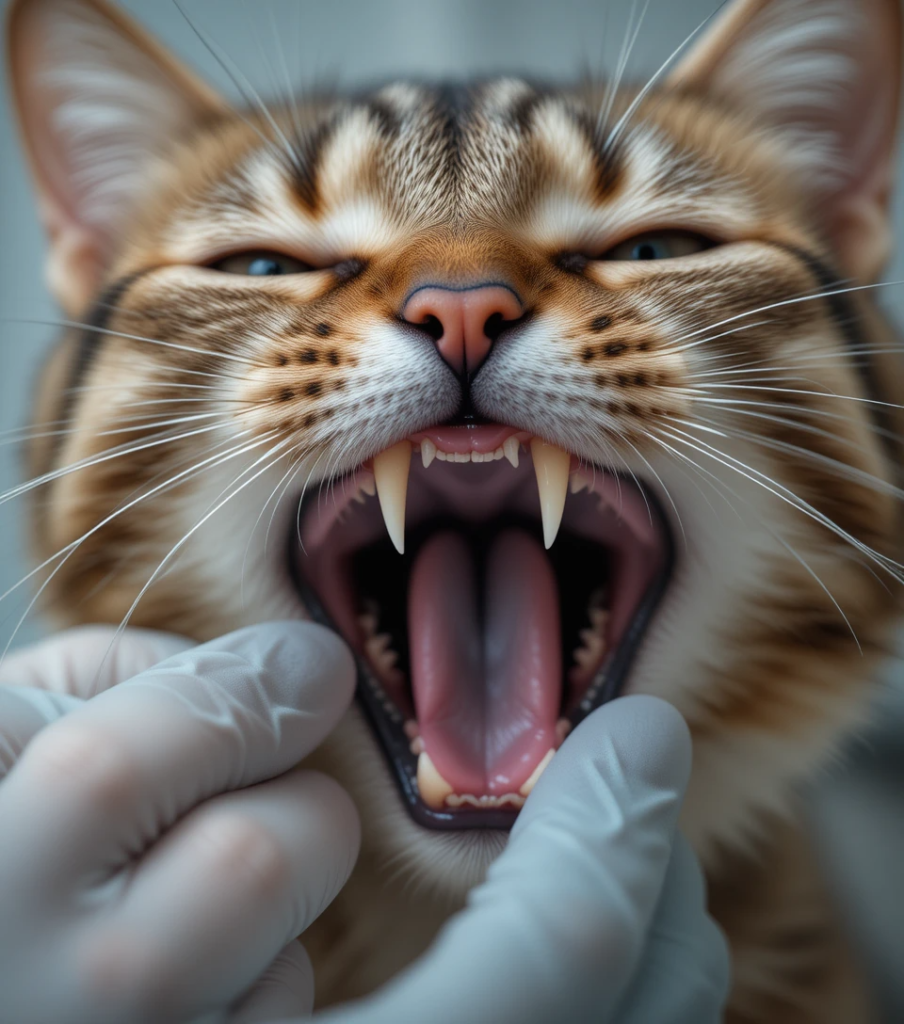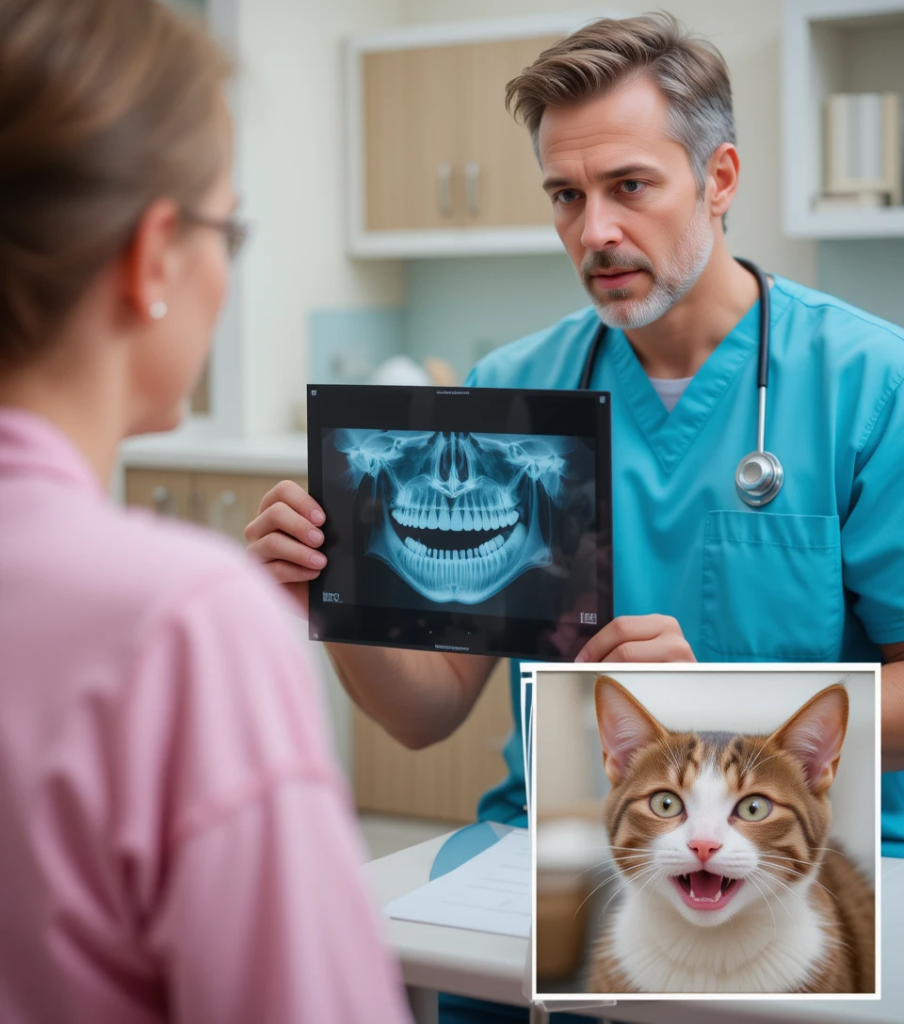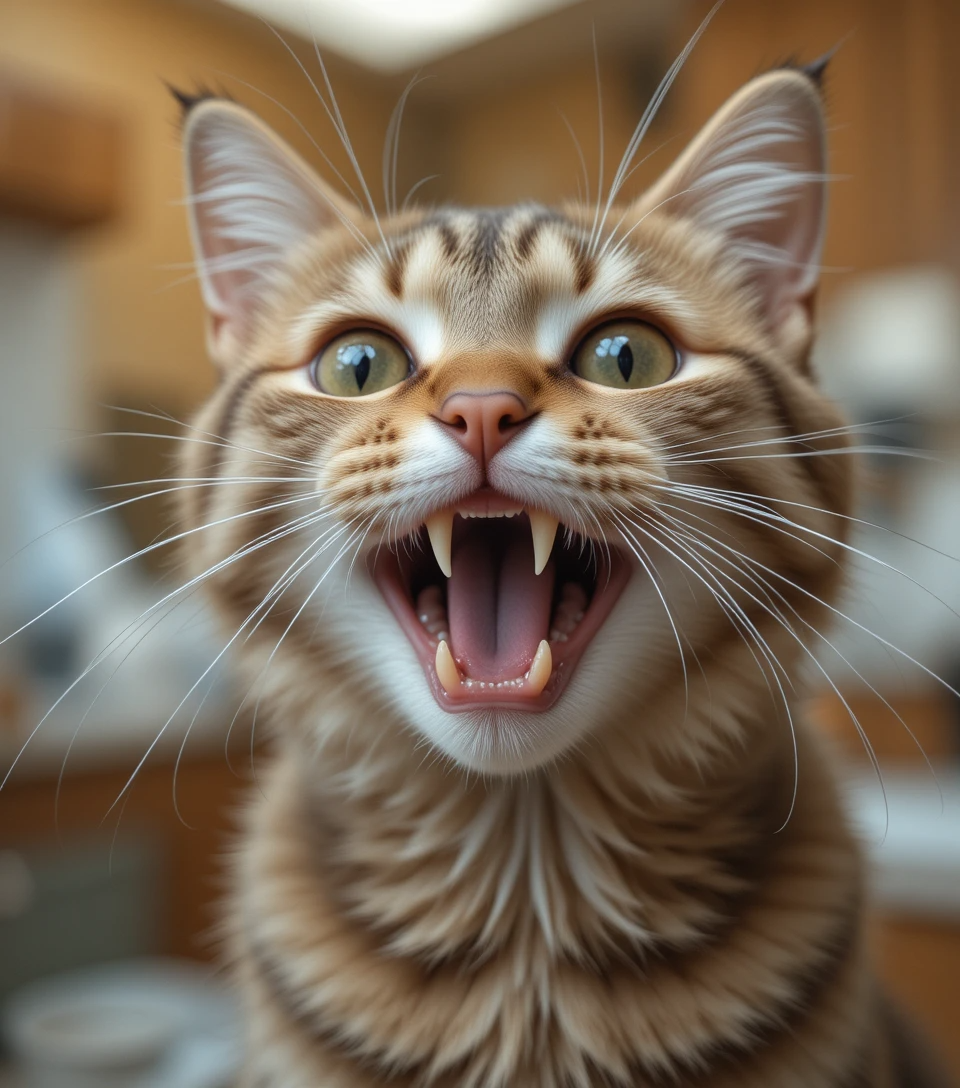Cats are known for their sharp teeth and powerful bites, but how many teeth do they actually have? More importantly, what does your vet want you to know about feline dental health? In this article, we will explore the number of teeth cats have, common dental issues, and why neglecting oral care can lead to severe health risks.
How Many Teeth Do Cats Have?
A healthy adult cat has 30 permanent teeth, while kittens start with 26 baby (deciduous) teeth. Kittens are born without teeth, and their baby teeth begin to emerge at around two to four weeks of age. These baby teeth will eventually be replaced by adult teeth between three and six months of age.
Kitten Teeth Development Timeline:
- 2-4 weeks: Baby teeth start to emerge.
- 6 weeks: Kittens have a full set of 26 baby teeth.
- 3-6 months: Baby teeth begin to fall out as adult teeth grow in.
- 6-7 months: All 30 adult teeth are in place.
Understanding a Cat’s Teeth Structure

Cats’ teeth are designed for hunting, gripping, tearing, and chewing. They have:
- 12 Incisors (small front teeth used for grasping and grooming)
- 4 Canines (long, sharp fangs for killing prey)
- 10 Premolars (help with shearing and cutting food)
- 4 Molars (used for grinding food)
Common Dental Problems in Cats
While knowing how many teeth cats have is important, understanding dental health risks is even more crucial. Vets warn that 85% of cats over three years old suffer from some form of dental disease. Here are the most common issues:
1. Plaque and Tartar Buildup
Plaque forms on teeth and hardens into tartar, leading to gum disease and bad breath.
2. Gingivitis
Inflammation of the gums caused by bacterial infections, leading to redness, swelling, and discomfort.
3. Periodontitis
A severe form of gum disease that damages the teeth and surrounding bone, potentially leading to tooth loss.
4. Tooth Resorption
A painful condition where a cat’s teeth deteriorate from the inside, often requiring extraction.
5. Broken or Lost Teeth
Cats can break or lose teeth due to trauma, decay, or advanced gum disease.
Signs Your Cat Has Dental Problems
Your cat may be suffering from dental disease if you notice:
- Bad breath (Halitosis)
- Drooling or excessive salivation
- Difficulty chewing or preference for soft food
- Red, swollen, or bleeding gums
- Loss of appetite or weight loss
- Pawing at the mouth or face
The Vet’s Urgent Warning: Why You Shouldn’t Ignore Dental Care

Neglecting your cat’s dental health can lead to serious health complications beyond just tooth loss. Bacteria from gum infections can enter the bloodstream, potentially affecting the heart, liver, and kidneys. Vets strongly recommend regular dental checkups to prevent serious illnesses and improve overall well-being.
How to Care for Your Cat’s Teeth
1. Brush Their Teeth Regularly
Use a cat-specific toothbrush and enzymatic toothpaste to clean their teeth at least 2-3 times per week.
2. Provide Dental Treats & Toys
Dental chews and toys can help reduce plaque and keep your cat’s teeth strong.
3. Feed a Dental-Friendly Diet
Specially formulated dry kibble and wet food options can aid in oral hygiene.
4. Schedule Regular Vet Checkups
Annual dental checkups and cleanings help catch problems early.
5. Monitor for Dental Issues
Keep an eye on changes in your cat’s eating habits and behavior to catch dental issues early.
FAQs About Cat Teeth
1. How many teeth do kittens have?
Kittens have 26 baby teeth, which are later replaced by 30 permanent teeth as they grow.
2. Do cats lose their teeth?
Yes, kittens lose their baby teeth around 3-6 months old. Adult cats can lose teeth due to disease, trauma, or decay.
3. How can I tell if my cat has a toothache?
Signs of dental pain include drooling, bad breath, pawing at the mouth, difficulty eating, and weight loss.
4. Can I use human toothpaste on my cat?
No, human toothpaste contains toxic ingredients like fluoride and xylitol. Use cat-specific enzymatic toothpaste.
5. How often should I brush my cat’s teeth?
Ideally, daily brushing is best, but at least 2-3 times per week can help maintain dental health.
6. Are dental treats effective?
Yes, veterinary-approved dental treats can help reduce plaque and tartar buildup.
7. What happens if I don’t clean my cat’s teeth?
Neglecting dental care can lead to gum disease, infections, tooth loss, and even organ damage.
8. Why does my cat’s breath smell bad?
Bad breath is often a sign of dental disease, infections, or digestive issues.
9. Can indoor cats develop dental problems?
Yes, even indoor cats can develop plaque, tartar, and gum disease without proper dental care.
10. When should I take my cat to the vet for dental care?
Your cat should have an annual dental exam, but if you notice signs of discomfort, seek veterinary care immediately.
Conclusion
Knowing how many teeth cats have is just the beginning—keeping them healthy and clean is what truly matters. Vets warn that dental disease is one of the most common yet preventable health issues in cats. By practicing good oral hygiene, you can help your feline friend avoid painful dental conditions and live a longer, healthier life.
If you suspect your cat has dental issues, schedule a vet visit as soon as possible!

